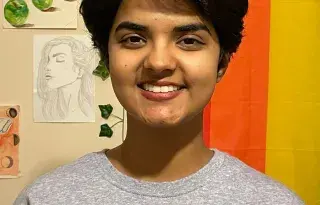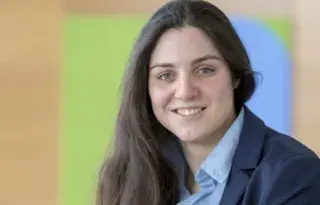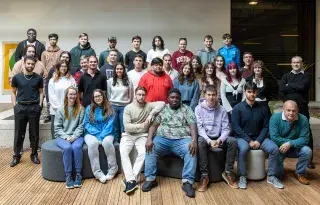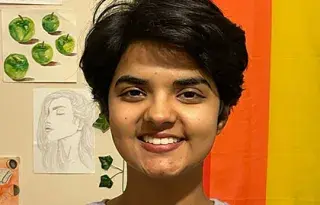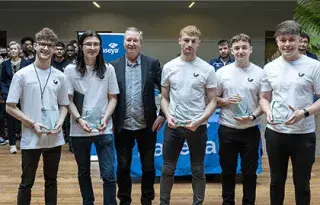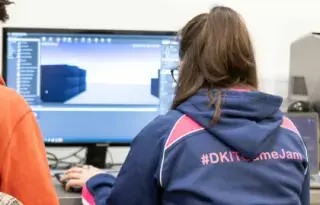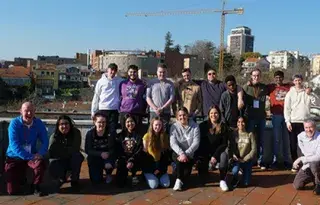BSc (Hons) in Computing in Games Development
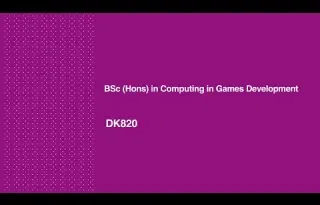
Search to find a different course
Course Overview
Students will gain a solid foundation in fundamental computing knowledge and the technical and creative skills of games development in topics such as; Programming, 3D Modelling and Animation, Games Design, Game Engine Development, 2D and 3D Character Animation and UX Design. Students will produce numerous portfolio pieces during the course, with the final year offering specialist options and a team project that involves the development of a substantial computer game.
What makes this course different
Work Placement
In 3rd Year (Semester 2) students undertake a minimum of 15 weeks of work placement with host companies.
Excellent Career Prospects
83% of graduates are in employment after 6 months of graduating.
Understanding the Industry
The computer games industry is a thriving and dynamic sector that encompasses the development, publishing, and distribution of video games for various platforms, including PCs, consoles, and mobile devices. It is a multi-billion-dollar industry, with many global and indie developers having their headquarters based in Ireland. The industry continues to evolve, embracing innovative technologies such as virtual reality and cloud gaming, while also expanding its global reach, making it a huge part of modern entertainment.
Career Opportunities
Future Careers:
- Game Engine Developer
- Game Designer
- Shader Programmer
- UI and UX Designer
- Creative Manager
- Front End Developer
- Software Tester
- Mobile Developer
- Full Stack Developer
- AI Developer
- Software Architects
Graduates work at
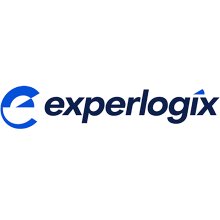


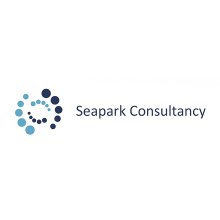
Course Delivery and Modules
This course is delivered in a combination of lectures, lab classes and tutorials. There is a specific focus on problem-based learning and so much of the programme content is delivered in small 20-student computer labs where students can avail of greater feedback and interaction with their lecturer. There are numerous support services available within the department to enable and encourage all students to realise their personal and professional potential.
Elective module choices in the final year of the programme allow students to focus on the discipline that they intend to pursue as a career after graduation.
- Programming
- Client-Side Web Development
- Games Theory and Practice
- Mathematics
- Personal and Professional Development
- 3D Modelling and Animation
- Games Design Project
- Database Systems
- Introduction to Networking
- Applied Software Development Principles
- Intensive Project Abroad (optional)
- Object-Oriented Programming
- 2D Game Engine Development
- 2D and 3D Character Animation
- Database Systems
- Software Testing
- Mathematics
- Intensive Project Abroad (optional)
- C++
- Calculus
- Applied Software Project Management
- UX Design
- 3D Game Engine Development
- Games Physics
- Algorithms and Data Structures
- Universal Design Project
- Sound Technology
- Intensive Project Abroad (optional)
- Work Placement
- Approved Semester Abroad (optional)
- 3D Game Development
- Legal and Ethical Issues in Computing
- Research Methods
- Entrepreneurship
Electives:
- Collaborative Project OR Project
- Multi-Player Distributed Programming
- Artificial Intelligence
- Procedural Game Audio
- Digital Sculpting and Digital Painting
- Intensive Project Abroad
- Machine Learning
- Game Audio Implementation
- Narrative Design
Work placement
In 3rd Year (Semester 2) students undertake a minimum of 15 weeks of work placement with host companies.
The host companies are provided by the department in coordination with the Placement Office or students can undertake a placement with an appropriate company which they have identified themselves.
Education Progression
Graduates with a satisfactory level of achievement may be able to undertake postgraduate (HDip/ Masters/PhD) studies in a relevant area. Postgraduate research opportunities, either a research masters or PhD are also available at DkIT.
MSc in Computing in Computer Animation
MSc in Computing in Games and Extended Reality
MSc in Computing in Medical Device Software Engineering
Fees and Funding
Please find information on fees and funding here: www.dkit.ie/fees
Entry requirements
In addition to the standard entry requirements below, Maths Grade H6 or O3 is also required for Leaving Certificate or QQI applicants. A Merit in QQI Maths for STEM NFQ (5N0556) will also meet this specific Mathematics entry requirement.
Applicants from NI/UK require a GCSE Maths Grade 8/A or AS Level Grade C or A Level Grade E.
- Standard Requirements for Leaving Certificate Applicants
- Standard Requirements for UK/NI Applicants
- Standard Requirements for QQI-Further Education Applicants
- Mature Applicants: Minimum of 23 years of age on January 1st of year of application
Additional Maths Entry Exam at DkIT:
If you have not met the maths entry requirements for this course (but you have met the basic maths entry requirement for a level 8 programme at DkIT), you have a second chance at meeting these additional Maths Entry Requirements by sitting the DkIT additional Maths Entry Examination, held in August of each year. More details about the maths entry exam.
Recent CAO points
How to apply
Apply on CAO
All standard entry first-year applicants must apply for entry through the CAO. See Important application dates for CAO and information for specific applicant types below:
Advanced Entry & Transfer Applications
Advanced Entry is for applicants who have previous educational achievements and/or work experience and want to be considered for direct entry into year 2, 3, or 4 of a course. This includes students looking to transfer to DkIT from another Higher Education provider.
International Application (non-EU)
International Applicants (not from or living in the EU) can apply through an agent or directly to DkIT to study this course.
Ask us a Question
If you have a question about the BSc (Hons) in Computing in Games Development please ask it below and we will get back to you.
Department Office
Course News
View all NewsDisclaimer: All module titles are subject to change and for indicative purposes only. All courses are delivered subject to demand and timetables are subject to change. Elective Module options will only run subject to student numbers. The relevant Department will determine the viability of each elective module option proceeding depending on the number of students who choose that option. Students will be offered alternative elective modules on their programme should their preferred elective option not be proceeding. Award Options for Common Entry Programmes: The relevant Department will determine the viability of each award option proceeding depending on the number of students who choose either option. If the numbers for one of the Award options exceed available places, students for this option will be selected based on Academic Merit (highest grades).

